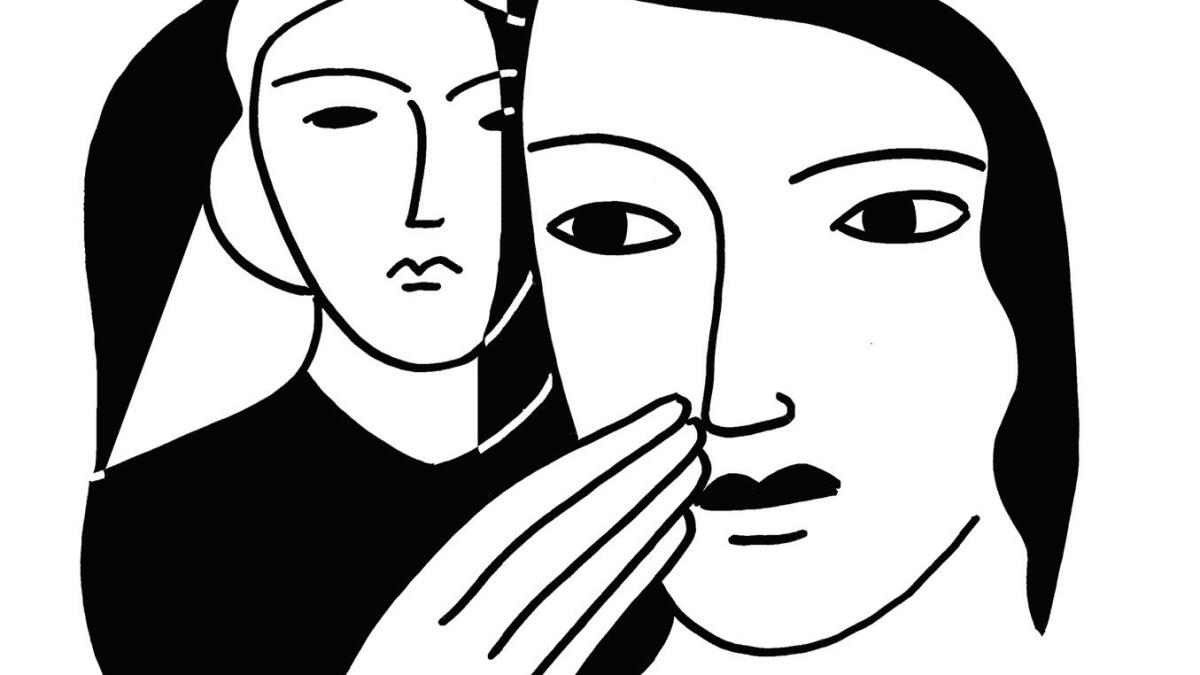Op-Ed: In battle against rude people, kindness is a powerful weapon

- Share via
In Los Angeles, you can call 311 to get a stack of old mattresses removed from your alley; I don’t see why there isn’t some number to summon aliens with a giant ray gun to pop down and vaporize the guy marching back and forth in front of my house, yelling into his cellphone.
And sure, as he helpfully pointed out, “It’s a public street!” — but there’s a reasonable presumption that the sounds you hear inside your house will be house sounds: the tea kettle whistling, bacon frying and your dog biting his toenails. Basically, another person’s right to have a cellphone yell session outside your home ends where your living room begins.
We’re all experiencing more daily rudeness than ever, to the point where there seems to be a revised Golden Rule: “Do unto others … whatever you think you can get away with.” Pundits are quick to blame technology, too much parenting, too little parenting and the reality TV empire known as the Kardashians. But science tells another story: We have lost the constraints we had on our behavior for millions of years of human history. In short, we are rude because we are now living in societies too big for our brains.
I came to this idea via the finding by British anthropologist Robin Dunbar that there’s a “magic” population limit — approximately 150 people — beyond which civility breaks down. In a society of 150 or fewer, where everyone knows everyone else (like the small bands in which we evolved), concern for reputation keeps people from acting out. But there’s no need to worry about reputation when you are surrounded by strangers, as we so often are these days, and it’s transformed our society into a free-for-all for the piggy and entitled.
We obviously can’t turn the clock back to a world where everybody knows everybody and the blacksmith’s mother. What we can do is use my “societies too big for our brains” concept to bring back some of the constraints and benefits of the small societies in which we evolved.
This starts with letting empathy — “How would I feel if that were done to me?” — be our behavioral guide, rather than whether we know the person we are about to do it to. We also need to start speaking up to the rude, which is something many people feel uncomfortable doing.
To get over this psychological hurdle, we need to recognize rudeness for what it is: A form of theft. A cell boor who privatizes shared space as his own is stealing your attention. The neighbor who blasts music at 2 a.m. is stealing your sleep. And ultimately, all rudeness is the theft of everybody’s peace of mind because it makes our world into an ugly shove-or-be-shoved place.
Admittedly, some rudeness is a result of good people just not being mindful. If their behavior is pointed out to them, they will generally express embarrassment and apologize . However, for the egregiously, remorselessly rude, we need to bring back the power of shaming in the public square. Standing in for the pillory we have what I call webslapping: posting awful behavior on social media. (There’s a new sheriff in town, and it’s the YouTube video that goes viral.) Even if the particular rude person never sees his or her ignominious star turn, the fear of being similarly exposed should deter others from acting out.
Not everyone will be comfortable standing up to the rude, but we can all start making a daily effort to treat strangers like neighbors: smiling, saying hello, and doing the small kindnesses that we would for people we know. For example, a friend came upon an older lady fanning herself on a bench on a hot Boulder, Colo., street. The woman asked my friend where she could get a Diet Coke. My friend went up the block, bought a Diet Coke, came back and handed it to the woman. “Oh, my God!” the woman shouted. “You’re kidding me! God bless you! I can’t believe you did that!”
It’s pretty amazing. A small kindness that’s no big deal when you do it for someone you know is an incredibly powerful act when done for a stranger. It’s also likely to have cascading societal returns. Research by psychologist Sonja Lyubomirsky found that recipients of kind acts were almost three times more likely to do kind acts for others. So simply by regularly reaching out to our co-humans, we can transform our society, little by little, from a vast strangeropolis to a really, really big neighborhood. The way I see it, a minimum of one kind act a day should be our self-imposed cover charge for living in this world. We get the society we create — or the society we let happen to us.
Amy Alkon’s latest book is “Good Manners for Nice People Who Sometimes Say F*ck,” which was published in June.
Follow the Opinion section on Twitter @latimesopinion
More to Read
A cure for the common opinion
Get thought-provoking perspectives with our weekly newsletter.
You may occasionally receive promotional content from the Los Angeles Times.









